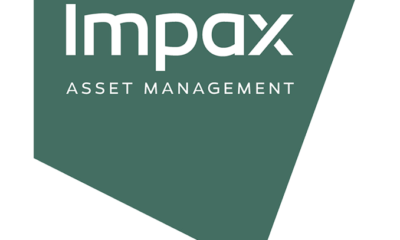

Features
Good Money Week: The surprise is that anyone is ‘surprised’ that ethical investment ‘can’ be unethical
Breaking news: the Pope is Catholic and bears fertilise the woods. A recent article in the Financial Times expressed ‘surprise’ that some ethical funds aren’t completely ethical. Some funds are more unsustainable, unethical and irresponsible than others, just like some companies and some people are. It’s a sliding scale from the darkest green to the bloodiest red.
In the run up to Good Money Week we always get a slew of newspaper articles that trot out the same tired arguments and cite the same few funds, which anyone in the socially responsible industry would probably avoid. As I wrote in an email response after this recent FT article was sent to me: “You get the pro-SRI articles, the hostile and everything in-between. Very rarely do we get a rational debate that informs, educates and entertains readers.”
It’s as if on an editorial floor somewhere in the days before Good Money Week, an editor picks a journalist at random and says: “Trot out 200-words on ethical investment being unethical and find me a couple of really egregious examples. Don’t worry about all the really good options, there’s a good fellow.” Year in, year out, the same every time. It’s beyond us why they don’t just print the same article every year and change the by-line to Troll.
Yes, it is true that some interesting companies make it into an ethical fund’s portfolio. But we have to accept in our free society that there isn’t a universally accepted view on what ‘ethical’ is. So by what universal standard of ethical weights and measures can it be confidently asserted that some ethical funds aren’t ethical?
For some investors it’s all about the sin stocks: smoking, drinking, gambling, adult entertainment, arms trade and nuclear power = bad. For some, the first four are a good night out.
Some investors disapprove of irredeemable fossil fuel companies, with their degradation of natural habitats and indigenous people, the air pollution and carbon bubbles. Other investors argue that those same companies still play a role in our economy (do you use electricity, have a gas oven, a car and use plastic?) and through active shareholder engagement can be convinced to play a greater part in the transition to a more sustainable economy. Others are working in those companies to make them more sustainable. When Shell isn’t foolishly trying to exploit the Arctic, it’s installing hydrogen vehicle fuel pumps across its ‘petrol’ stations in Germany.
Other investors still, are looking at the innovative, disruptive, fast-growth game changers in sustainability; clean technology, breakthrough healthcare and robotics, sustainable agriculture, fisheries and forestry, etc.
WHEB, Triodos, Threadneedle, Impax and Quilter Cheviot operate particularly good sustainable funds, focusing on positive themes, rather than the more classic screening of negative sin stocks. Alliance Trust, EdenTree, F&C, First State, Henderson. Pictet and Rathbone Greenbank are all good eggs from the more established ethical world. If I can scramble my egg metaphor, ‘rather a diamond with a flaw than a pebble without’.
Some funds are clearly participating in greenwashing – when an organisation spends more on claiming to be “green” than actually implementing positive environmental and social practices. This is true of ethical investment funds as it is in every single other commercial sector. Some ‘good’ ethical funds sit alongside the most unethical funds in a large asset management firm’s product suite. Can a fund be truly ethical if the company it sits under is 90% unethical?
And most people realise that companies and their advertising lie. That skin cream won’t make you more attractive or younger, something cannot be both new and improved, car emissions data aren’t worth the glossy adverts they’re printed on and everything that is labelled ethical, isn’t. So why express surprise unless you’re engaged in clickbait faux shock?
Historically we’ve take the editorial line that attacking the few bad eggs in the tiny ethical fund universe (140 funds) is lazy journalism, when there are sulphurous legions of really, really bad and harmful eggs in the mainstream fund universe (3,000+). But we’re still asked who the good funds are within the ethical universe. In our Guide to Sustainable Investment, launched on Friday, we will finally look at how the funds rate from an independent expert’s perspective.
Independent SRI Consultant John Fleetwood of 3D Investing told Blue & Green: “I suspect only a small minority of companies will ever adopt truly sustainable principles. Codes of conduct like the UN-backed Principles of Responsible Investment will always seek to be inclusive and therefore have a rather modest impact in terms of encouraging genuinely sustainable behaviour and activities. The focus is always on process – how companies operate – rather than on what the companies do.
“This matters, since I would argue that you can have the most sustainably managed arms manufacturer or tobacco company, but it means little if the core product kills people. This is at the very core of the problem as ‘sustainable’ indices and codes of conduct don’t consider the nature of the business. Identifying companies that demonstrate best practice in ethical and environmental terms does have an important role, but so does consideration of the impact of a company’s core products and services, and so does exclusion of companies whose products and services are clearly destructive.
“Genuine sustainability requires all three approaches – exclusion, social impact, sustainability management. This is the basis of 3D Investing which focuses on the ‘what’ of investing as much as the ‘how’, to identify those funds that are truly sustainable and those that are not.“
And then there are the growing number of sustainable alternatives to mainstream funds that the mainstream media fail to mention, such as Ethex. Ethex is an online platform that makes it easier for you to put your money directly into businesses whose mission and impacts you support, and that also offer a financial return.
Jamie Hartzell of Ethex said: “As we head into this year’s Good Money Week many of us will again be considering the ethical nature of our personal investments. This is never a simple task – if you want more than the skin deep you have to dig down to find the true information.
“Ethex makes all that easy – our aim is to make positive investment easy to do. And the good news is that there are now a handful of funds with a genuine interest in reporting their social and environmental outcomes. This is an exciting development and we’re looking to get these funds on Ethex soon so we can widen the positive choices available to investors.”


 Environment12 months ago
Environment12 months agoAre Polymer Banknotes: an Eco-Friendly Trend or a Groundswell?

 Features11 months ago
Features11 months agoEco-Friendly Cryptocurrencies: Sustainable Investment Choices

 Energy11 months ago
Energy11 months agoThe Growing Role of Solar Panels in Ireland’s Energy Future

 Energy12 months ago
Energy12 months agoHow Renewable Energy Can Help Combat Climate Change, According to Indra Energy


























